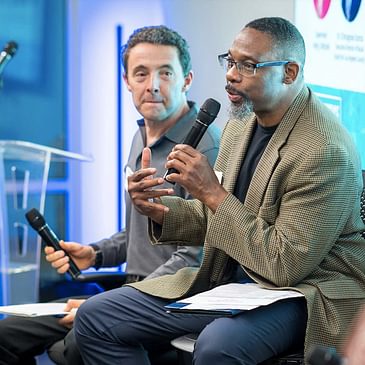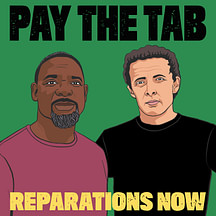This is an exciting time in the fight for Black reparations! As momentum builds across the country, Pay The Tab is expanding in new directions - including the first-ever reparations course at UCLA Law School. In this special episode, Tony and Adam bring the latest news, answer your questions, and share things we all can do to disrupt America's toxic system of racism, denial, and capitalist greed.
Contact Tony & Adam

#16 - Special Update: The Reparations Movement, Our Growing Project, and Things We All Can Do
This is an exciting time in the fight for Black reparations! As momentum builds across the country, Pay The Tab is expanding in new directions - including the first-ever reparations course at UCLA Law School. In this special episode, Tony and Adam bring the latest news, answer your questions, and share things we all can do to disrupt America's toxic system of racism, denial, and capitalist greed.
